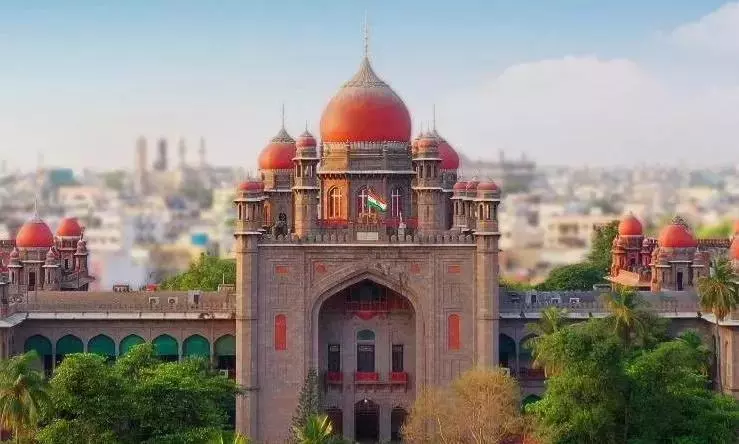Tech Student Suffering From TB Gets Telangana High Court Relief
Counsel for JNTUH argued that under university norms, a relaxation of up to 10 per cent attendance can be granted in case of medical emergencies.

Hyderabad:Justice Laxmi Narayana Alishetty of the Telangana High Court sitting in the vacation court directed the Jawaharlal Nehru Technological University Hyderabad (JNTUH) and CMR Institute of Technology to consider a representation filed by a third-year engineering student who was barred from appearing in exams due to low attendance. The judge was dealing with a writ plea filed by Yenreddy Abhinav, a student of CSE (Artificial Intelligence & Machine Learning). The petitioner sought a direction from court after being denied a hall ticket for the VI Semester examinations scheduled to begin on June 2. The petitioner contended that he was suffering from tuberculosis and was undergoing medical treatment, which resulted in 44 per cent attendance — well below the 75 per cent required by university regulations. He submitted a representation on May 8 to the college authorities seeking exemption on medical grounds. Counsel for JNTUH argued that under university norms, a relaxation of up to 10 per cent attendance can be granted in case of medical emergencies. Even with this concession, the petitioner still fell significantly short of the threshold. Considering the exceptional medical circumstances, the judge directed the Controller of Examinations and principal of the college to consider the student's representation and pass appropriate orders on or before June 1 taking into account his health condition.
HC backs, in part, RTC ex-staffer claim
A two judge panel of the Telangana High Court dismissed four writ appeals filed by the Telangana State Road Transport Corporation (TSRTC) and partly allowed a writ appeal filed by an ex-employee, directing the corporation to pay interest on delayed leave encashment. The panel comprising acting Chief Justice Sujoy Paul and Justice Renuka Yara was dealing with four writ appeals preferred by TSRTC challenging the orders of a single judge who had directed the corporation to pay leave encashment benefits to former employees who had been removed from service. The fifth appeal was filed by an employee seeking interest on the delayed payment of leave encashment. Senior counsel G. Vidya Sagar, appearing for the TSRTC, argued that under Regulation 50(B) of the APSRTC Leave Regulations, employees removed from service were not entitled to leave encashment. He relied on judgments of the Punjab and Haryana High Court and the Jharkhand High Court to support the stand that removed employees do not retain such benefits. Counsel for the respondents argued that the single judge had rightly relied on a previous division bench judgment of the Telangana High Court which held that Regulation 50(B) does not prohibit grant of leave encashment to removed employees. They contended that the leave earned while in service constituted a property right protected under Article 300A of the Constitution and could not be denied in the absence of an express statutory bar. Agreeing with the ex-employees, the panel observed that Regulation 50(B) does not bar leave encashment in cases of removal and that benefits already earned during service cannot be forfeited without statutory backing. The panel held that such service benefits amount to ‘property’ under Article 300A of the Constitution and could not be withdrawn through executive instructions alone. In one of the writ appeals preferred by the ex-employee the panel directed the corporation to pay interest at 6 per cent per annum on the delayed payment of leave encashment to the appellant, noting that the single judge had granted similar relief to others in connected matters.

